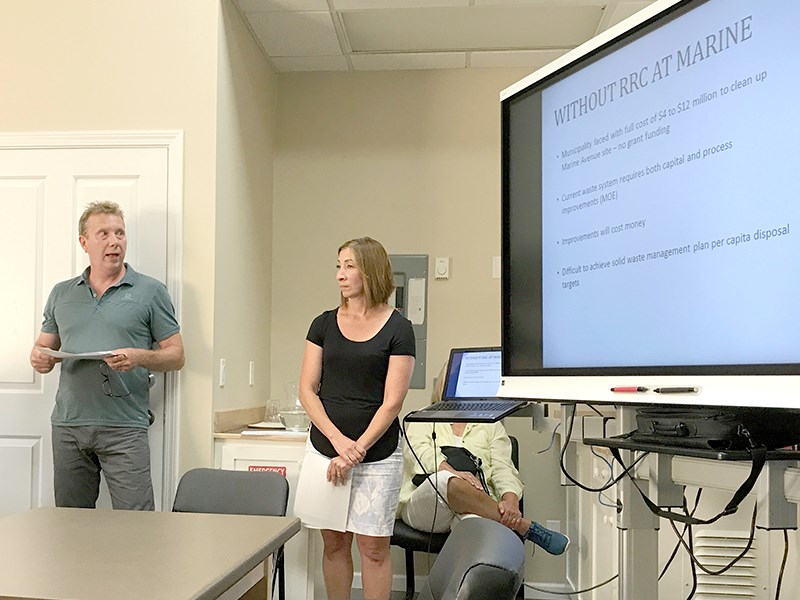A Powell River Regional District plan for how the region will deal with its garbage and recycling over the next 10 years has been approved and will be sent out for public consultation in September.
The regional district board approved the draft solid-waste management plan at its Thursday, July 27, meeting. A public engagement period is planned for September and October.
District manager of asset management and strategic initiatives Mike Wall and manager of financial services Linda Greenan gave a joint presentation on the financial impacts of the plan for the region’s taxpayers.
“The opportunities in this plan will provide the community with a state of the art facility and system that is resilient, convenient, environmentally responsible as well as economically viable,” Wall told the board.
The closure of the former Marine Avenue waste incinerator site and the development of the resource-recovery centre is a key component to the 10-year garbage plan, said Wall.
Over the 10 years, regional taxpayers will be see their tax rate for waste-management services increase roughly 10 per cent annually, or about $1.26 per year per $100,000 of house value, according to the staff report.
The current tax rate for waste management services is $10.80 per $100,000 of assessed house value.
“We're projecting that in 2026, under this plan, the rate will be $20.60 per $100,000,” Greenan told the board. "It's approximately a $1 per year increase.”
The regional district currently pays $220 per tonne of garbage for tipping fees. Greenan said she expects that rate to increase two per cent annually, so in 2026 the rate will be $260 per tonne.
In 2017, a typical homeowner with a $300,000 house disposing of 330 kilograms of garbage annually, will pay $105 for garbage service.
The total cost for that typical household in 2026 is expected to be about $120 per year in today’s dollars, or about $15 more than they are currently paying, stated Greenan.
"It's a simplistic example, but it's just to get an idea of what the cost will be," stated Greenan. “It all depends on how people handle their garbage.”
Wall said residents could pay less depending on how well they use the regional district’s proposed organics composing and recycling programs.
Wall told the board the regional district knows Powell River’s current system for dealing with its garbage requires capital and process improvements.
“That's been cited, not only by the solid waste committee we work with, but also from the BC Ministry of Environment,” he said. “Whether we decide to improve our private system or go with one that's public/private, we know we are facing more costs.”
Wall acknowledged the improvements will cost money, but said without developing the resource-recovery centre, which creates a one-stop drop, the taxpayers would have seen greater cost increases. He added that the centre will also make it easier for the regional district to reduce per capita landfill disposal rates.



